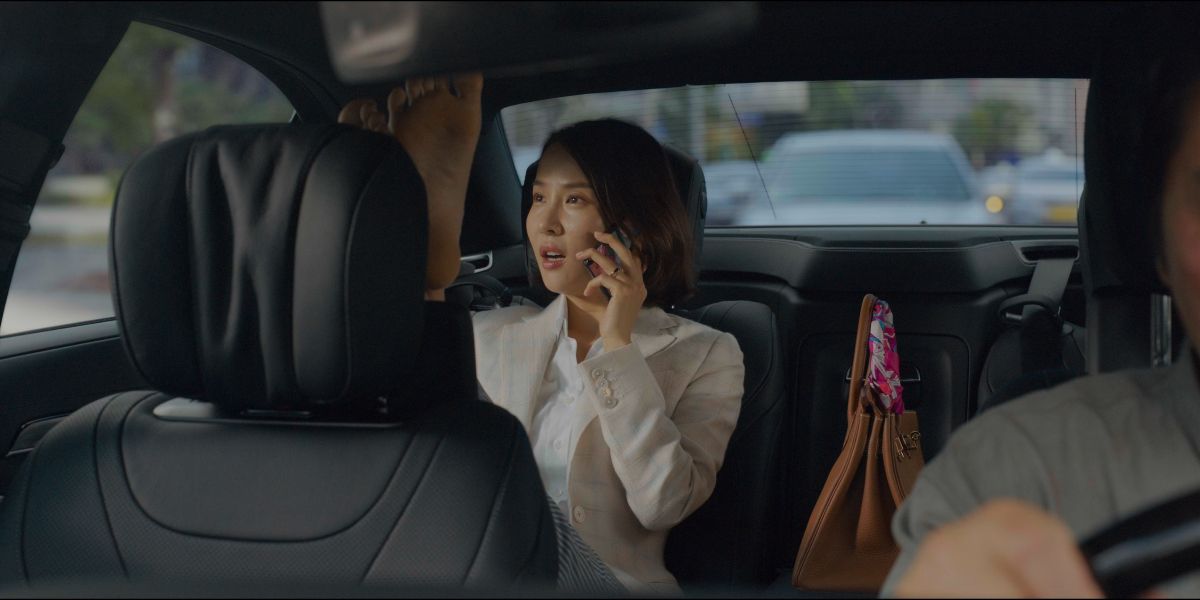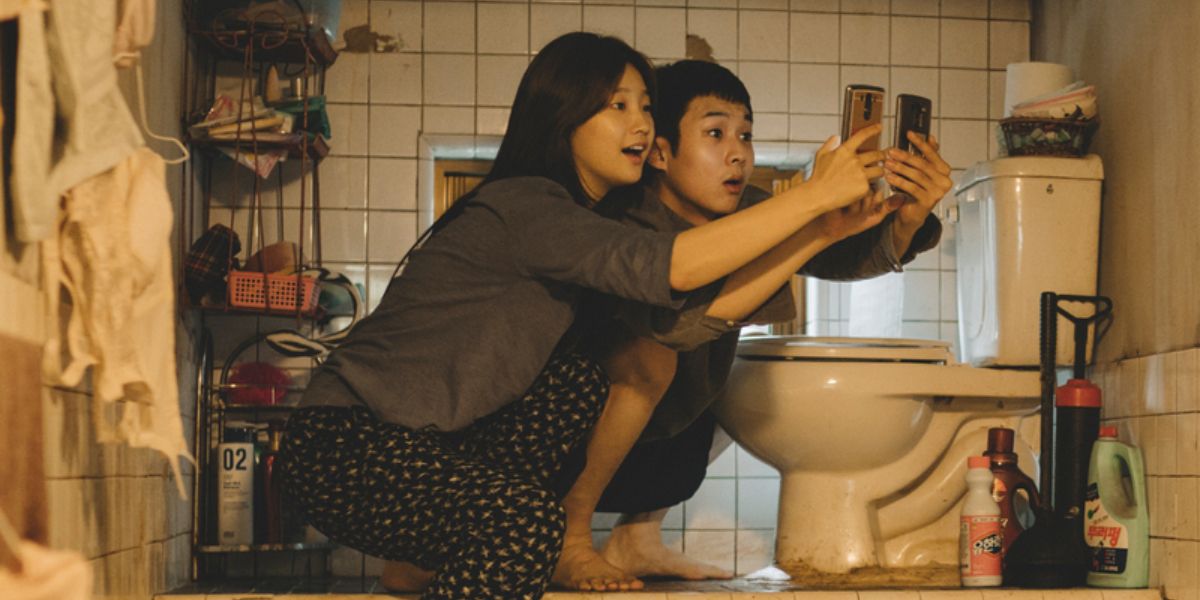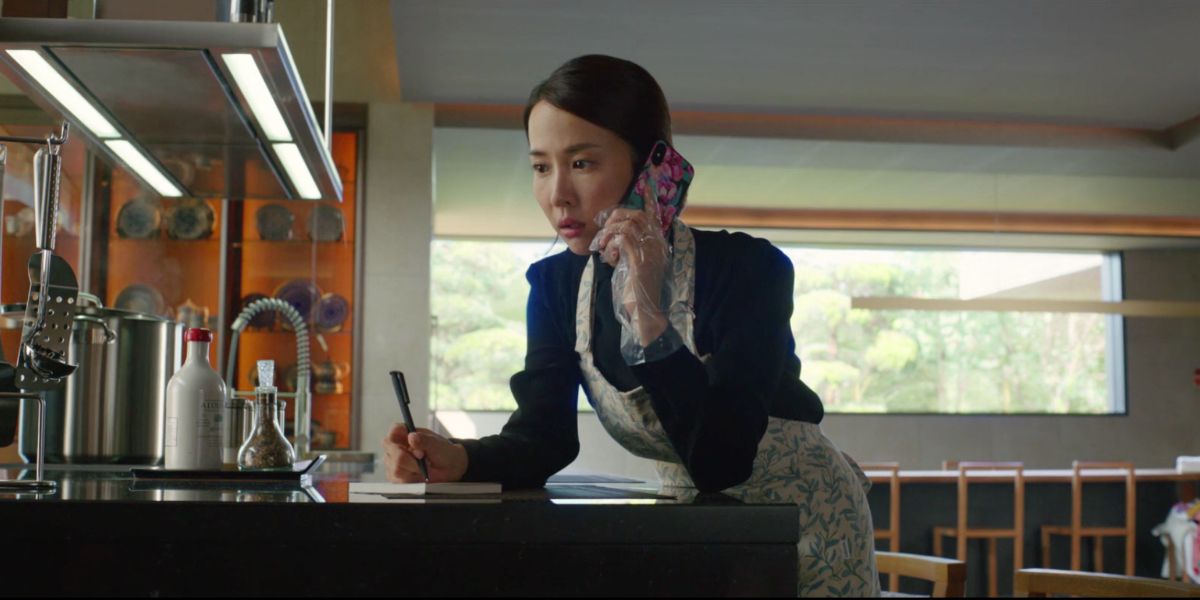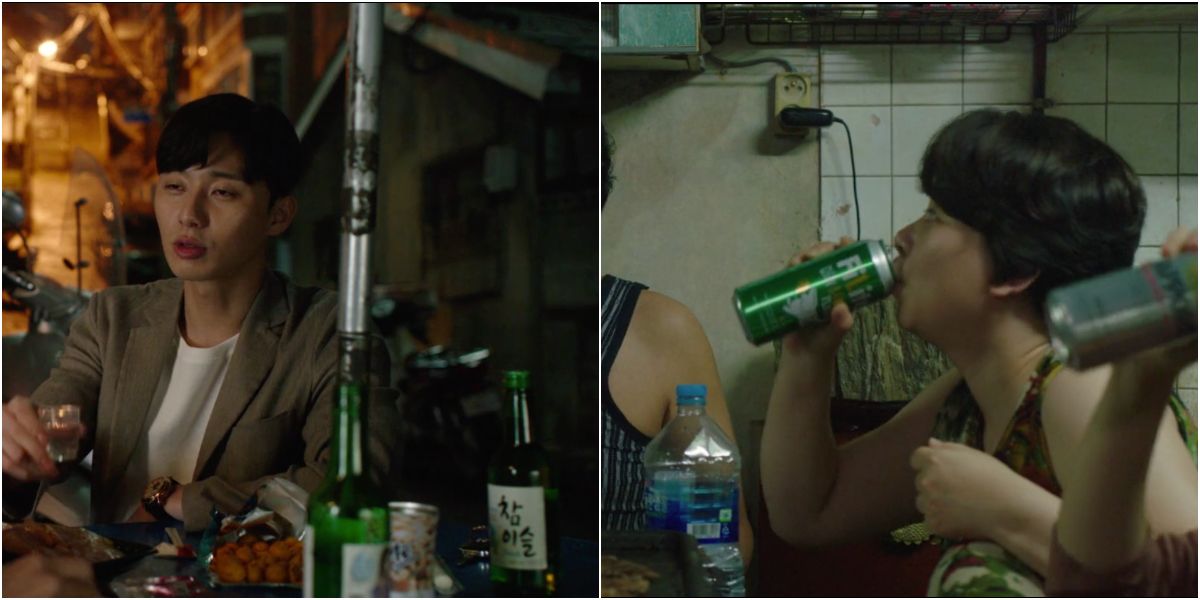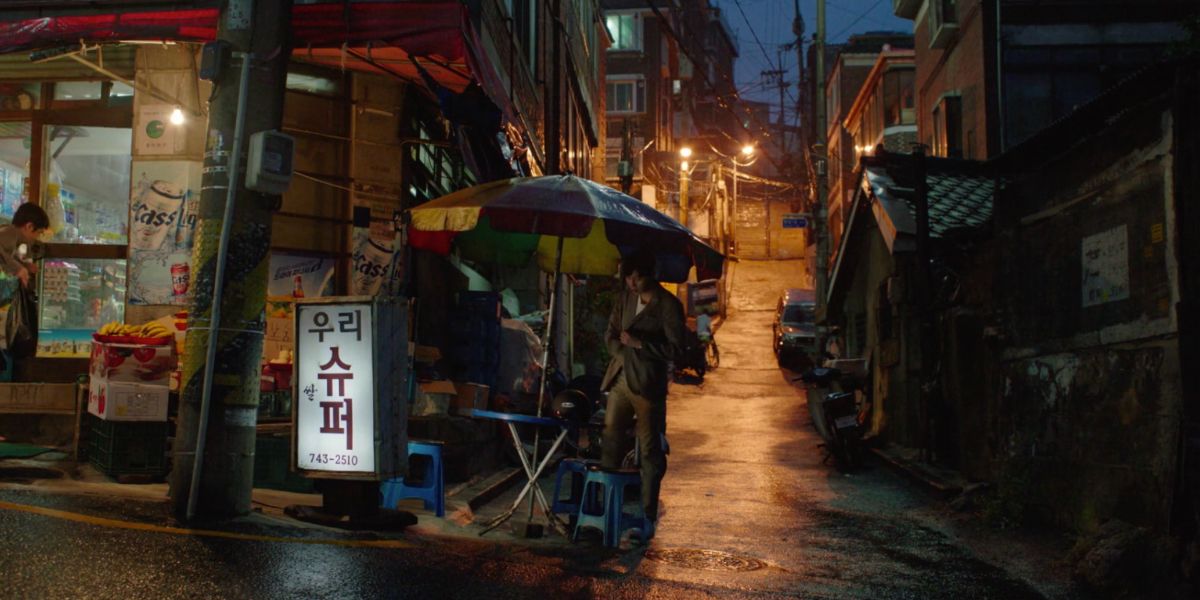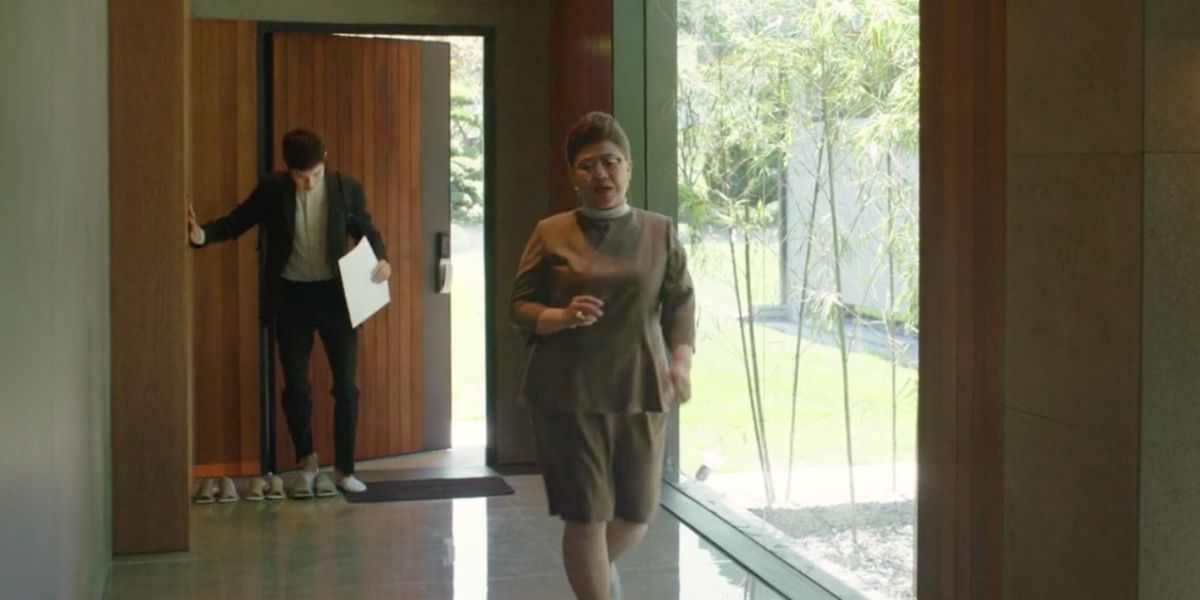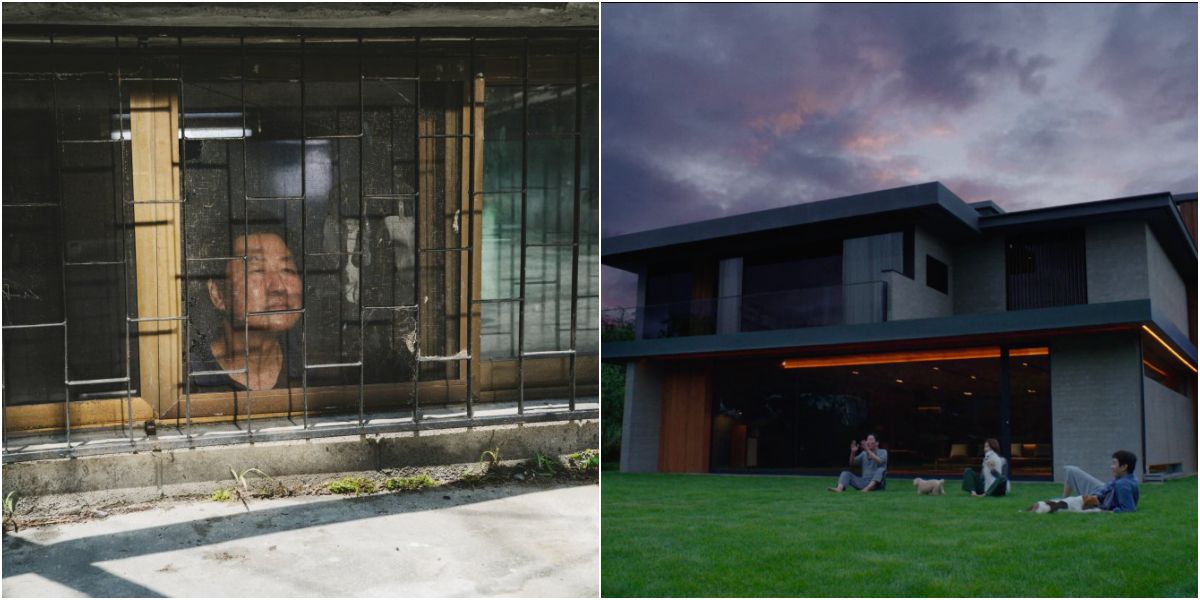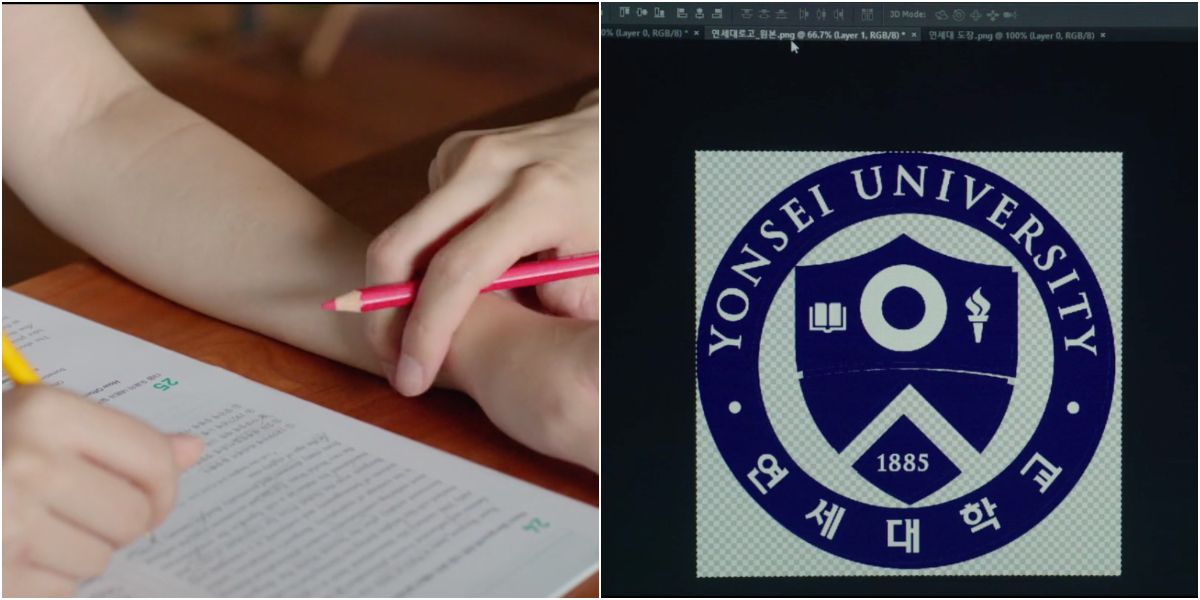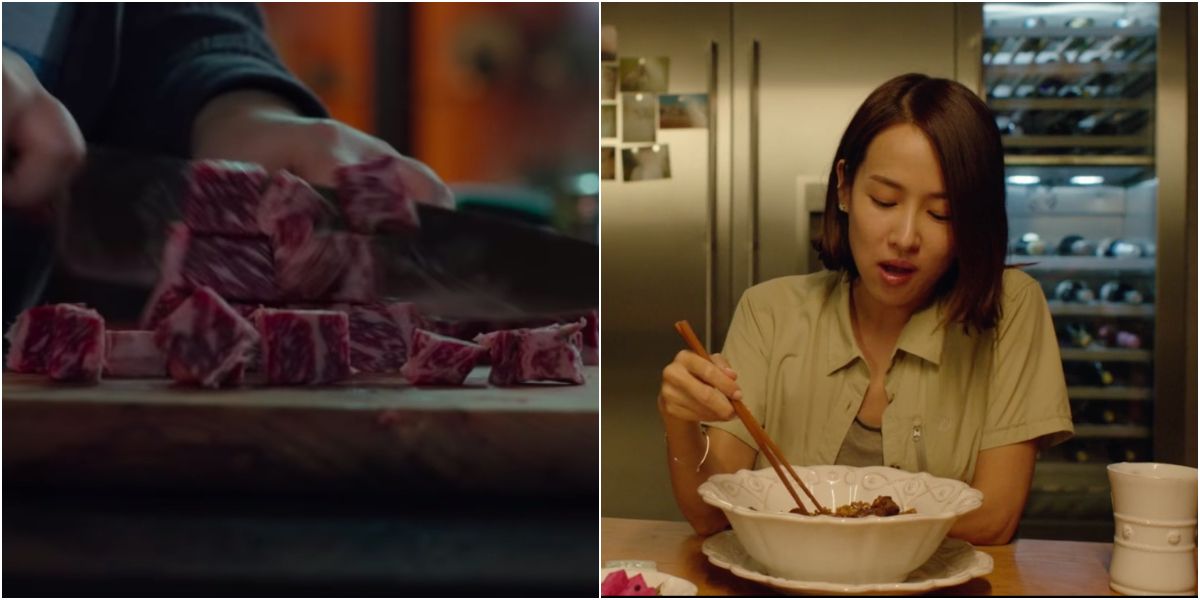The South Korean thriller film, Parasite, astounded audiences around the world. It became the first-ever Korean film to win Best Picture at the Oscars, along with a number of other wins. Bong Joon-ho enamored fans with his riveting and spine chilling story about the wealthy versus the lower class.
The film is set in modern-day South Korea and involved many of its day-day customs. Bong has expressed in interviews that he wasn't worried about how small cultural details would translate to outside audiences. Yet, there are some key details in the film that are specific to South Korea and that many may not know about. Let's take a look at what details will make more sense after finding out what they mean.
The Use Of Banmal And Familial Names
In South Korea, respect is a huge part of how one needs to present themselves or how one says certain words or phrases. In the Korean language, like many other languages, there are two forms of speaking - formal and informal. When Ki-Woo is speaking to his pizza boss, she is younger than him and refers to him with the formal way of speaking, despite her being his boss.
Later, Min yells at the drunk outside the Kim's home and he uses "banmal," or the impolite way of speaking, showing disrespect to an elder. As well, familial names are used with people considered the closest to you, for example, "oppa," "hyung," and "nunna," which can mean brother and sister. Moon-Gwang calls Mrs. Kim "unni," which offends her because they don't have that kind of close relationship.
South Korea Air Pollution
There's a scene in the film where Mrs. Park is in the car and makes a statement about the air quality that day. She remarks that its thankfully not so bad that day. This may seem a bit peculiar to outsiders, but there's a reason for the comment.
South Korea is known for having low air quality due to the pollutants that are brought in by wind from China and other parts of Asia. This is part of how Koreans go about their daily lives. The fine dust causes respiratory issues and is one of the reasons why Koreans wear face masks. There are even apps that tell the daily percentage of fine dust in the air.
Kakao Talk
Every part of the world has its own form of free messaging apps that uses data or Wi-Fi, instead of text messaging rates. At the beginning of the film, the Kim children are trying to get Wi-Fi. Their mother makes the statement that without Wi-Fi, they can't get Kakao Talk.
Kakao Talk is the South Korean equivalent of WhatsApp and many people in Korea use the messaging app instead of their phone's built-in messenger. The app is so popular that the brand even has its own characters and stores that sell merchandise.
The Family Register
A huge part of the storyline in the film revolves around the Park family being duped into hiring the Kim family as employees. When Mrs. Park calls a fake housekeeping agency, they pretend to ask her for the basic run of the mill documents a real agency would need.
One might notice that she needs the family register. In South Korea, family registers are common and required by law. It's a long list of family history including births, deaths, marriages and divorces for each household. When a new child is born, it's important to have them registered. Some American-born Korean males aren't registered in Korea, and so if they decide to move to Korea, they aren't required to serve in the military, unlike Korean-born males.
The Alcohol
South Korea has a big drinking culture. When Ki-Woo is drinking with his friend, there's a green bottle on the table that he's taking shots of. This is soju, South Korea's number one most popular alcohol.
It's sold everywhere and many people can handle more than one bottle, despite its high alcohol percentage. The second most popular drink in Kora is beer. But, this is where social class comes into play. The Kim family is seen drinking a certain brand of beer. FiLite beer is the cheapest beer on the market and doesn't have the best flavor.
The Outside Bar
South Korea has an immense food and restaurant culture, and delivery is also very popular. At the beginning of the film, Ki-Woo is having a drink with his friend at an outside bar. These are small areas with a table, chairs and sometimes a tent that is outside a convenience store.
Many restaurants also work out of street bars, with massive tents as their main structure. Koreans have no issue sitting outside in the cold for a drink or a bowl of ramen. It's also custom for the youngest to always serve their elder first.
No Shoes Indoors
Not wearing shoes indoors in the U.S. depends on family preference. But in most of Asia, it's a requirement and this includes South Korea. South Koreans are very hygienic in this regard and don't like the idea of bringing in outside germs or debris into their home.
It's common for anyone entering a home to take off their shoes in the foyer. Many will also notice a number of slippers to put on when walking about. Going shoeless is also expected in some doctor's offices and restaurants.
Poor Vs Rich House
The half-basement house the Kim family lives in is a huge topic of discussion. They're still seen in some neighborhoods in Seoul and this says a lot about social class. The Kim family is halfway between the ground and the rest of the world.
In comparison, the Park house is a big deal. Not many can buy an actual home in Korea and the majority of Seoul's population live in apartments. It's very high status to be able to not only live in a secure neighborhood but have an actual house with a yard.
The Entrance Exam
The South Korean education system is notoriously difficult to navigate. Getting through high school is one thing, but getting into the right college is another. The key moment that matters most is the college entrance exam. This determines the future for many students and can cause severe stress.
The exam will determine whether or not you can get into the university of your choosing. It's the equivalent of the SAT, but more nerve-wracking. Audiences may not have realized that the university Ki-Jung is aiming for is one of the best in the country and the equivalent of Harvard or Yale.
The Meat In The Ram-don
Parasite created a ramen frenzy, as audiences rushed to the supermarket to buy Jjapaguri and Neoguri ramen. Mrs. Park eats the dish after her son doesn't want it anymore. Mrs. Kim had no idea how to make Ram-don, which is a combination of two ramen flavors mixed with high-quality strip steak.
This is a key example of how the film illustrates class divide. "Hanwoo" or strip steak is very expensive in Korea and is seen as a luxury. It can cost up to $10 for 100 grams. Beef is often seen as a meal to eat on special occasions. When first meeting in-laws or important people, its a sign of respect and wealth to gift them different cuts of quality meat.



